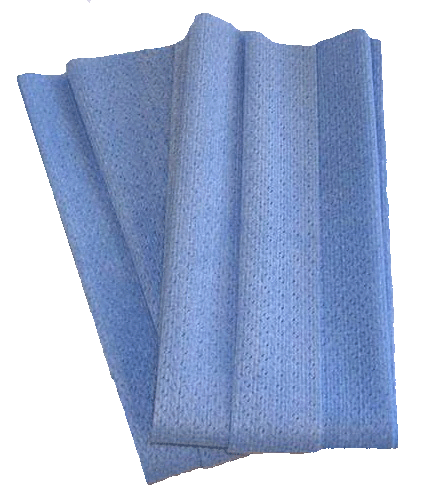INDUSTRY FACTS
what the experts say
“… it would be prudent for perioperative nurses to consider methods to reduce the levels of airborne particulates that may serve as vectors to increase the transport of microbes in the OR environment.”
“Airborne Particulates in the OR Environment”
AORN Journal by C. Edmiston – June 1999
Bacteria being transported on lint particles

“Lint particles are disseminated into the environment where bacteria can attach to them. This bacteria carrying lint may settle in surgical sites and wounds with the resultant increase in postoperative patient complications.”
AORN 2008 Standards, Recommended Practices

“There is often a failure to recognize that particulate contamination can cause significant post-procedural complications when less invasive cardiovascular or cerebral vascular procedures are performed...”
“Lint and Particle Contamination During Diagnostic and Interventional Procedures in the Cardiac Catheterization Lab” Cath Lab Digest - Sept 2006
Lint fiber clinging to the edge of a scalpel

Stent Thrombosis -- 1997 study of coronary stent implants found: “42% of patients with stent thrombosis had particulates (glove powder and lint fibers) enmeshed with the thrombi”
Whelan D, Van Beusekron H, Van Der Giessen W. Foreign body contamination during stent implantation Catheterization and Cardiovascular Diagnosis March 1997; 40 (3): 328-332
“…a wound containing foreign material is highly susceptible to infection even if few microorganisms are present.”
Guidelines for Prevention of Surgical Wound Infections from the Centers for Disease Control and Prevention

Embolism -- “Unintentional foreign body emboli remain common in modern angiographic practice and are probably underappreciated clinically. Particulate embolization, which is usually a cotton fiber, is present in as many as 25% of resected arteriovenous malformations….”
Shannon P, Billbao JM, Marota T, et al. Inadvertent foreign body embolization in diagnostic and therapeutic cerebral angiography. Am J Neuroradiology Feb 2006; 27: 278-282
CLINICAL STUDIES
what the studies say
TECHNICAL STATISTICS
what the numbers say
Lint Generation & Fluid Capacity Comparison
Compared to traditional cotton towels and other nonwoven towels, the ESSENTIA® ultra low lint towel generates extremely low levels of particulate while still being highly absorbent.

* Specific technical data along with product codes are available upon request.
Lint Comparison – Wet Filtrate Method
This demonstration shows how the particulate is easily removed from the traditional woven towel as compared to the
ESSENTIA® ultra low lint towel.


Woven Cotton Towel
50x Magnification of Filter Surface
ESSENTIA® Ultra Low Lint Towel
50x Magnification of Filter Surface
* Specific technical data along with product codes are available upon request.